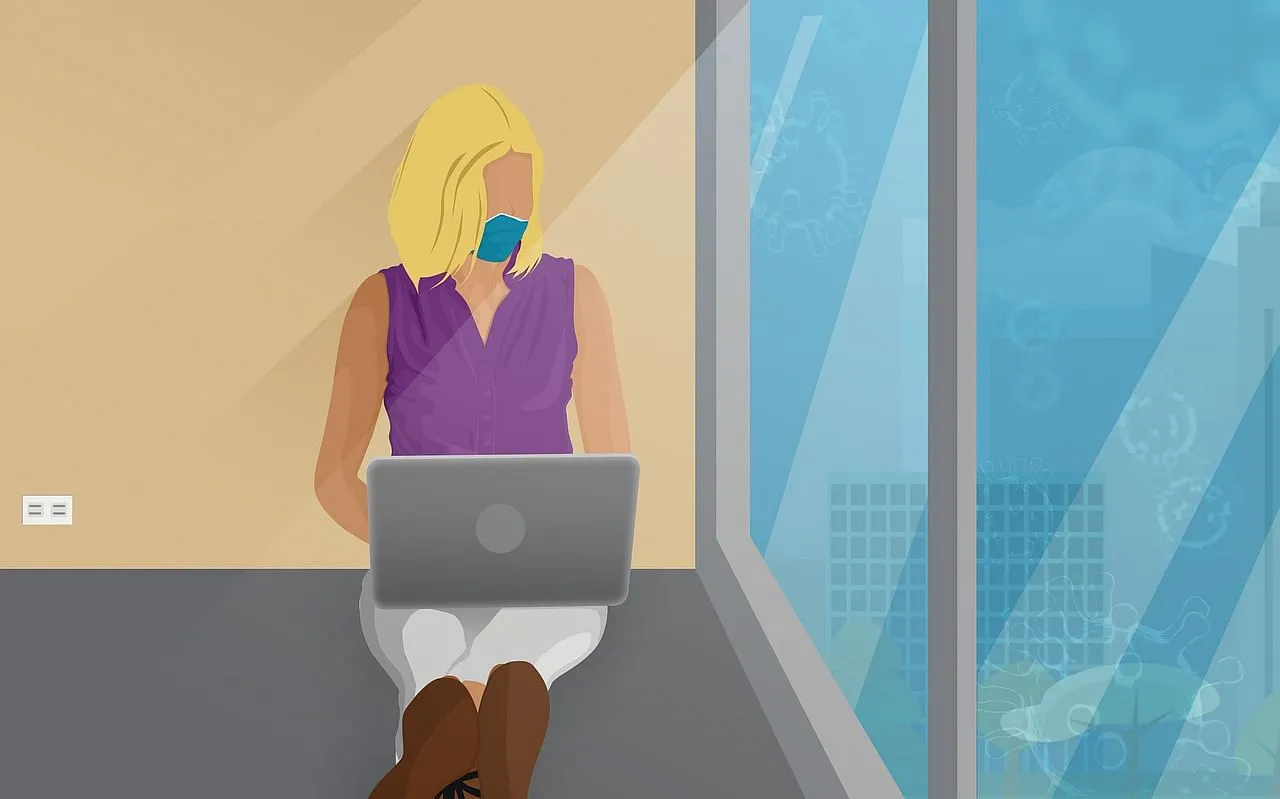As many as 41 lakh youth in India lost jobs due to the COVID-19 pandemic while construction and farm sector workers account for the majority of job losses, according to a joints report by the International Labour Organization (ILO) and the Asian Development Bank (ADB).
In Kashmir, tourism sector is a major job provider, after COVID-19 , this sector is worst hit. Tourists come to visit gardens, pastures, lakes, mountains in Kashmir, religious tourism is important for Jammu as well, if tourists visit then they stay in hotels, and jobs created in hotel industry from cook, waiter to manager, also our handicraft sector gets a boost.
Work is central to people’s lives. An average person spends one-third of their adult life working, yet we neglect the importance of work. We address drug use, family life, and psychiatric symptoms, but may not fully appreciate how those factors are relevant to us or our patient’s work.
As we consider anxiety, depression, substance use, spousal and child abuse, and loneliness, all of which have been found to increase following disasters, we must not forget how the pandemic is affecting our workforce.
However, psychiatrists or psychologists will find it difficult to ignore the centrality of work over the coming months; the response to the COVID-19 pandemic has already led to a surge in unemployment.
When a patient loses their job, a psychiatrist must respond actively and swiftly for many reasons. Employment fulfils essential biological, psychological, and social needs. It is the means by which we sustain ourselves, comprises a large part of our identity and social community, and typically determines how we spend most of our waking hours. As such, job loss is profoundly disorienting, challenging the very meaning and purpose in life. It directly impacts self-esteem and perceptions of self-worth, precipitates anxiety, and increases the chance of becoming physically and mentally sick.Unemployment is associated with lower self-esteem and motivation, and an increased risk of substance abuse and suicide. The loss of an individual’s capacity to meet their basic needs through work is compounded by the loss of structure and shared experience that work typically confers. Because work fulfils such a broad range of human needs, job loss generally leads to a loss of well-being. Returning to work is the ultimate goal for the majority of our patients.
Answering these questions can assist patients in identifying what they may wish to do for employment in the future, including a potential change in career. Expectations, skills, and qualifications can be realistically assessed through discussing patient responses to these questions. The psychiatrist can serve as a sounding board for the patient’s ideas about future employment and help the patient cultivate adaptive perceptions, expectations, and realistic future plans. It is clear that the pandemic will continue to impact the economy, the job market, and work. It is likely that many aspects of work—such as where, how, and for whom work is conducted—will change, and many changes will persist beyond the pandemic. We may wish to recall that our society, economy, and work situations were far from perfect prior to the pandemic; perhaps the crisis can be re-framed as an opportunity for our patients to seek healthier and more meaningful work situations.
Job loss is likely to affect far more people than COVID-19 itself. Psychiatrists and psychologists are uniquely positioned to sustain the unemployed individual’s sense of efficacy, identity, and purpose during these difficult times. By understanding and supporting our patients, we can help them avoid a downward spiral of helplessness and despair that could otherwise follow job loss.
I end with following guidance from spirituality for all including those who are jobless or busy in their jobs.
“Have you ever wondered that apart from living a life from morning to night, full of actions like dressing up in the morning, going to work, cooking meals and going off to sleep at the end of the day, we also have a higher purpose in this lifetime? Take for example a machine in your home like an air conditioner. It runs when we put it on and shuts down when we instruct it to. When it is not running, it remains idle without ever thinking that it could do something else. Does it have a higher purpose? No. Then one day comes when we discard it forever and it is abandoned. We all are human beings first and not human doings only. Human doings work from morning to night, performing different actions, without a higher purpose. Human beings have a higher purpose – to look after the being while performing actions necessary to life. So, let us not be a like a machine from today. When we step into our workplace or when we look after our home, family and friends, let us think and be aware that one day we will leave this body and take with us nothing. No financial success, professional achievement, beautiful relationship and looks and outer personality will go with you, when you are no longer in this physical costume or body”.






